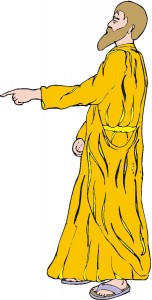The Abrahamic and Mosaic Covenants Are Subsections of the Torah Covenant (or the Old Covenant)
The Torah, the first five books of the Bible, is the chronicle of YHVH giving man instructions to follow, and of his entering into covenantal relationships with men and men either keeping those agreements or breaking them.
The word Torah means “instructions, teaching or precepts; specifically in biblical context: the teachings or instructions of YHVH to lead men into a righteous relationship with him through covenantal agreement.” The Torah is a giant b’rit or covenant. The Torah in a number of places even refers to itself by the Hebrew word b’rit or covenant. We see this in the following passages:
Exodus 34:27, And YHVH said unto Moses, Write you these words: for after the tenor of these words I have made a covenant with thee and with Israel.
Deuteronomy 29:1, These are the words of the covenant, which YHVH commanded Moses to make with the children of Israel in the land of Moab, beside the covenant which he made with them in Horeb.
The Torah is not unlike an instruction manual that one might receive from the manufacturer of an automobile, computer or some such device to help the buyer to operate his new purchase in a manner that allows him to receive years of trouble-free service. The Torah is YHVH’s instruction manual to help man to live in a way that brings life and blessing; it helps man to enter into a loving relationship with his Creator and to have a trouble-free relationship with his fellow man.
Within the first five books of the Torah-covenant are several smaller covenantal subdivisions such as the Abrahamic and the Sinaitic or Mosaic Covenants. Continue reading







